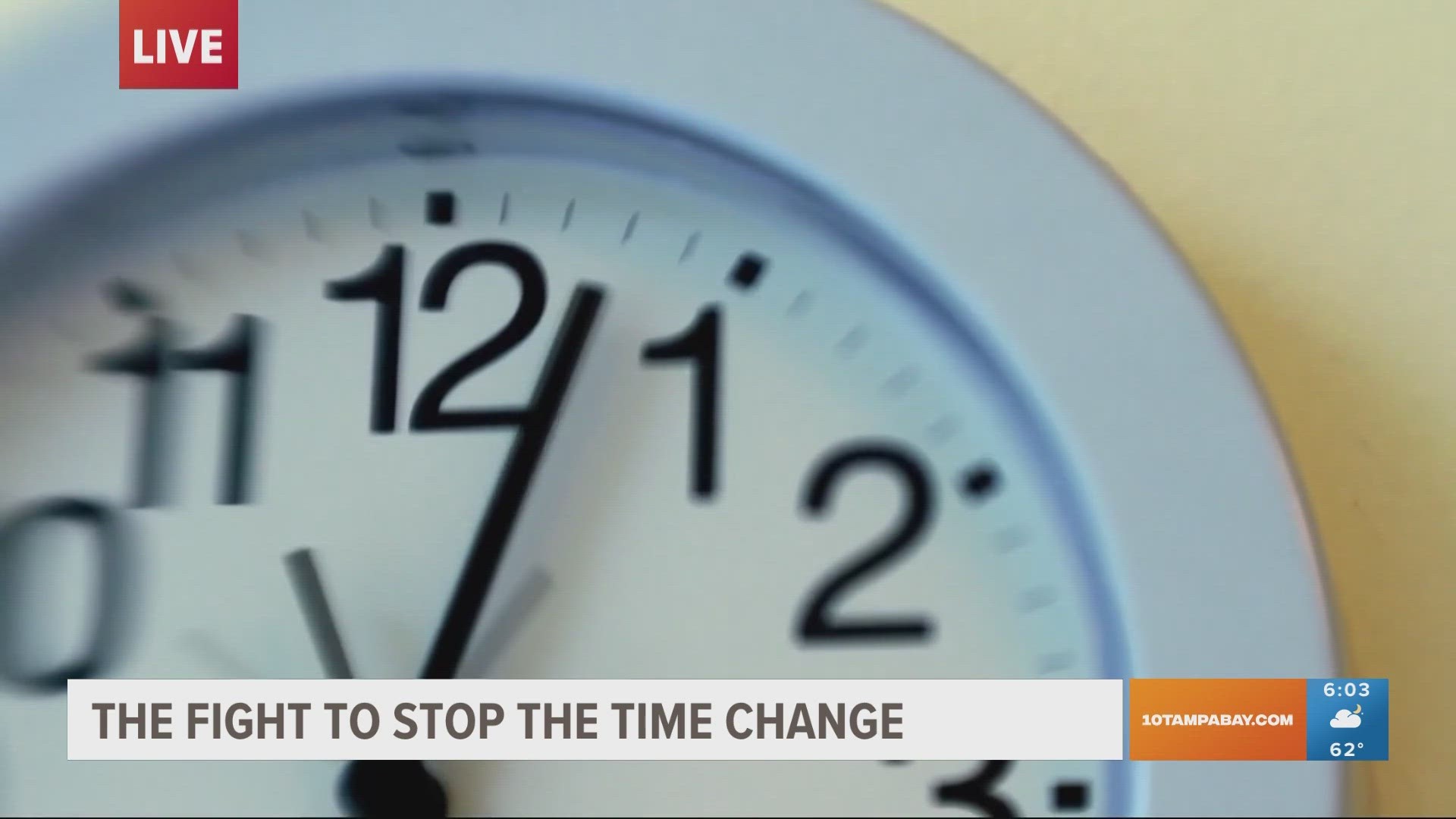UNITED STATES, — With clocks about to "fall back" an hour for the fall and winter, Florida Republican Sen. Marco Rubio is once again making his push for a permanent daylight saving time.
Rubio, who originally introduced the Sunshine Protection Act to the Senate in 2021 and reintroduced the bill earlier this year, renewed his calls on Congress to pass the bill that would make daylight saving time permanent nationwide.
"Why do we 'fall back' and 'spring forward,' year after year after year? It’s not because of the movements of the sun and moon. It’s not because of popular preference," he wrote in an op-ed for USA Today. "And it’s definitely not because of concerns for public health."
The U.S. first adopted daylight saving time in 1918 to conserve fuel for World War I. The idea was that an extra hour of daylight meant less time inside with the lights on, and, therefore, less money spent on fuel or electricity.
Ever since then, the subject of whether alternating between standard time and daylight saving time during the year has been the subject of debate, with opponents suggesting the switch does more harm than good.
“According to several scientific studies, the stress imposed on our bodies by abruptly changing time may cause a 6% increase in car crashes, an 8% increase in strokes, an 11% increase in depression and a 24% increase in heart attacks," Rubio wrote.
There is enough consensus behind DST no longer being useful that the Senate passed Rubio's bill by unanimous consent in 2022. It would need to be passed by the House and signed into law by President Joe Biden for the U.S. to end "springing forward" and "falling back" as a national practice.
It would be the nation's second attempt to adopt permanent daylight saving time. The first time was in 1974, during the energy crisis, when President Richard Nixon signed a law permanently adopting DST. However, the law had barely been on the books for a month before Florida's governor had called for its repeal after eight school kids were hit by cars in the dark. Before the end of the year, Congress repealed the law.
Currently, clocks move forward an hour in March to switch to daylight saving time and move back an hour in November for standard time.
Florida is one of 22 states that have signed legislation enacting permanent daylight saving time, but due to the Uniform Time Act of 1966, which mandated the use of DST nationwide, the laws in those states cannot take effect. The Congressional Act does allow states to opt out of DST and stay on standard time, but it does not allow states to make DST permanent. Congress would need to repeal the Uniform Time Act in order for the states' laws to take effect.
Due to a loophole in the act, there are two states that do not observe daylight saving time: Hawaii and Arizona.

